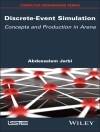This book addresses recent technological progress that has led to an increased complexity in many natural and artificial systems. The resulting complexity research due to the emergence of new properties and spatio-temporal interactions among a large number of system elements – and between the system and its environment – is the primary focus of this text.
This volume is divided into three parts: Part one focuses on societal and ecological systems, Part two deals with approaches for understanding, modeling, predicting and mastering socio-technical systems, and Part three includes real-life examples.
Each chapter has its own special features; it is a self-contained contribution of distinguished experts working on different fields of science and technology relevant to the study of complex systems. Advances in Complex Systems of Contemporary Reality: Societal, Environmental and Engineered Systems will provide postgraduate students, researchers and managers with qualitative and quantitative methods for handling the many features of complex contemporary reality.
Cuprins
Part I: Societal and Ecological Systems.- Protest Lab – A Computational Laboratory for Studying Street Protests.- A Generic Agent based Model of Historical Social Behavior Change.- Understanding Social Systems Research.- Forest Sim: An Agent-Based Simulation for Bioenergy Sustainability Assessment.- Toward a Complex Concept of Sustainability.- Effects of Policy Decision-making on Riparian Corridors in a Semi-arid Desert: a Modeling Approach.- Part II: Approaches for Understanding, Modeling, Forecasting and Mastering Complex Systems.- Dialectical Systems Theory as a Way to Handle Complex Systems.- Reducing Complexity of Nonlinear Dynamic Systems.- A Few Reflections on the Quality of Emergence in Complex Collective Systems.- Link Structure Analysis of Urban street Networks for Delineating Traffic Impact Areas.- Logic, Mathematics and Consistency in Literature: Searching for Don Quixote’s Place.- Energy-Efficient Buildings as Complex Socio-Technical Systems: Approaches and Challenges.- Part III: Real-life examples.- Modelling Space-Time-Action Modularity and Evolution of Living Systems.
Despre autor
Mohamed Nemiche is President of the Moroccan Society of Complex Systems and Professor at the University of Ibn Zohr University in Agadir. His expertise is in Computer Science, Mathematics, and Social Sciences.
Mohamed Essaaidi is the Director of the National College of IT, ENSIAS in Rabat. He is also the Chair of the IEEE Morocco Section.












